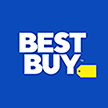
Building a Marketing Plan
When building a marketing plan, the conversation usually starts with, “So, what activity should we focus on?” The idea here is that an all or nothing approach should be taken. “Should we go all-in on SEO” or “should our focus be on social media”? Keeping a narrow focus is a common pitfall for small businesses looking to grow quickly on a small budget. Its very easy to pull one, two or three weeks worth of data from a channel and disregard its benefit on the campaign as a whole.
Getting from A to B
Just like the daily commute to work, the goal of a multi-channel marketing plan should be to get from current sales (point A) to future sales (point B). How you get from A to B should not matter as much as the end result. So, if it takes spending 20% of your budget on a Branded Display campaign to generate enough awareness, then that cost will be absorbed by the total results of the campaign.
Going All-In
If you have a small budget, try to avoid an all-in strategy. Typically, a business owner will go all-in on a tactic with the hope of short term success, only to be left disappointed when the tactic doesn’t meet their (sometime very high) expectations for sales or leads. Ideally, a digital marketing manager should have two, three, or sometimes all of the digital channels at their disposal.
Opportunities for Growth
A good place to start examining opportunities should start with industry data. A Vocus digital marketing survey asked over 400 small business owners to list in order what digital marketing channels are most effective for their business. Some interesting insights came out of this study. What Vocus found was that most small businesses still continue to drive sales through their website by way of email marketing, search engine optimization and social media. We know that many small businesses use social media (78%), email (70%) and SEO (58%) but which is most effective?
Which Digital Marketing Channel is Most Effective?
The study found that most business owners find their website, email marketing and search engine optimization to be the most effective tools in driving leads or sales to their website. Social media is a close 4th with almost 79% of small businesses using social.
Best Digital Marketing Channels
Let’s take a deeper dive into each marketing channel to uncover why companies use these top performing tools. Below is a list of each channel and what it does for your business.
1. Your Website
Your website is the main gateway to your brand. Many companies start with an attractive website as the first step to marketing their products or business. It doesn’t appear websites are going away anytime soon. They are still the most effective marketing channel, although many business owners attribute the success of a sale to their website rather than the marketing effort that got people there in the first place (SEO, social, etc.). This is a common problem than only be solved through education and analytics. A website alone will fail to generate activity unless there is an active program or advertising in place to drive visitors to that website. A great looking website is a good start but very few websites can get results without many months of social media, search marketing or advertising.
2. Email Marketing
Email marketing is still one of the top dogs of digital advertising and with good reason. Email marketing is a very effective tool to reach current customers and keep a relationship with those customers. While some may argue that social media is beginning to steal some of email’s thunder, email remains an effective way to reach customers if done right.
3. Search Engine Optimization
It’s no surprise that search engine optimization (SEO) is still one of the top performing digital tools in growing leads or sales. What’s most surprising about the Inc study is how low SEO ranks usage wise (57%) relative to it’s perceived effectiveness. The thought may be that social media is free, where SEO is expensive and requires someone with experience in search marketing. There is some truth that good search marketing is not cheap or free. Social media can be a path to better search engine performance with the right strategy in place. My assumption is most small businesses do not have an integrated search and social strategy in place. Going into 2014, it’s very important for businesses to look at search and social as one activity. A good SEO firm will use social as a way to promote content and improve search engine rankings.
4. Social Media
Social media appears to be gaining steam among small business owners. Why not? It’s free to use and free to set up a company page on Facebook, Pinterest, Twitter and more. While most businesses are active on social media, it’s hard to say which companies are using social media to it’s full potential. Without a strategy and commitment to engaging customers, most businesses will create it and forget it. Make sure your company is maximizing their social presence and providing good customer service via social.
5. Email for Customer Service
We sometimes forget that email can be used to improve customer service. Is your company using email confirmations, triggered email messages or email as a helpful product resource. If you can segment your email list by customer group, your marketing team can communicate tips and guides to buyers looking to get the most out of their purchase or just looking for help.
Bigger % of Budget
What is also interesting about the study is how much budget is going to digital marketing for small businesses. Of the companies surveyed, almost 75-90% of the marketing budget goes to digital. With limited resources in many cases, small businesses are directing most of their marketing spend to the top channels listed above. Digital is clearly a big driver of business and the spend % is a reflection of how important online marketing has become.
Focus on What Works but Keep an Open Mind
While most companies focus on what “works”, don’t get blinded by ROI and fail to see an opportunity. Social media is an emerging channel for marketers and helps drive customer engagement. Without a social media strategy and content promotion, most websites will fail to reach their business goals. Social media and SEO are becoming more closely connected after each Google update. To rank well in search, you must have social “signals” attached to your website. We’re now in a world where marketing diversity is the key to reaching your sales and lead goals.
Courtesy: www.interactivecleveland.com


















